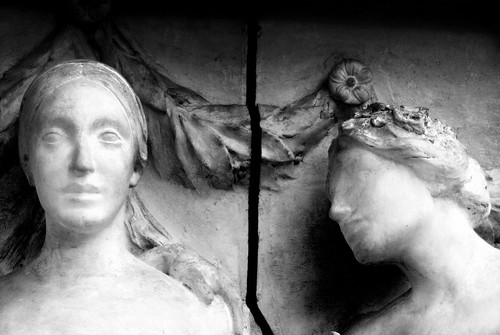KAREN RIVERS
Tribune Staff Writer
First, a poet captures you with a moment. Then, he applies pressure.
And finally -- ah -- there is a release.
He lets you out.
This is how Ted Kooser -- a Pulitzer-Prize winner and two-time Poet Laureate -- explained the experience of poetry during his reading Friday night at the Dogwood Fine Arts Festival in Dowagiac. He then read his poem "The Urine Specimen."
In it, Kooser describes the odd feeling of holding that cup, "like holding an organ -- spleen or fatty pancreas." As the poem unravels, it offers an effortless humor even as it ruminates on mortality.
It ends with an effective punch line: You raise the cup to toast the man in the mirror. That man "wanly smiles," but does not drink to you.
The crowd, particularly awake after he read the title, erupted in laughter at the poem's end.
Capture. Pressure. Release.
Kooser's precise, clear work has been described, on occasion, as haiku-like. Indeed, his verse has this quality, and the poems translate well on stage. They are poignant, but digestible.
Also adding to the charm of the evening was Kooser's straightforward, gentlemanly nature. In fact, he started with a poem that undermined his celebrity.
It was called "Success."
Becoming Poet Laureate, he explained was an unsettling, terrifying experience. (He received no warning -- just a phone call, after which he staggered around a lot and knocked the side-view mirror off his car while backing out of the driveway.) With all his speaking engagements, friends were always inquiring how Kooser (an introvert) was doing. Hence, "Success."
In it, he speaks of "the thick, yellow fat of applause" building up in his arteries, and the onset of "poetic aphasia."
It was a humorous way to start the evening and indicative of Kooser's character.
He went on to tell the audience that he has long woken at 4:30 a.m to write, and his work, in a way, seems to reflect that. In his poems, his diligence to observing the world is clear.
Sometimes, his works were snapshots capturing small moments of wonder -- a skater executing a turn, his wife washing her hands ("The more ordinary an experience, the more I love it," he said). Other times, they were poignant portraits of family members. Occasionally, they touched on greater social issues, as with his piece on county poor farms, a striking poem that left the audience with the haunting image of bodies buried by the government, each with a mason jar, the person's name written on a slip of paper inside.
Kooser's poems always seemed to hit their mark. They often earned murmurs of recognition or spontaneous clapping at their "release" moment. The evening, packed with his short, elegant, sparse verse, seemed to go quickly. Kooser left the stage to warm and genuine applause.

























